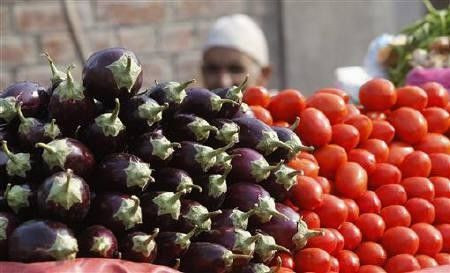FDI in Retails: Traditional Bazaars Losing Out to Supermarket Giants?

Foreign supermarket giants eyeing India may see rich pickings at New Delhi markets like Karol Bagh, where shoppers must negotiate a plethora of dubious-looking power lines and stinking rubbish piled high on sidewalks.
There is money in the narrow and clogged streets here, part of India's $450 billion retail sector that ranks as one of the last frontier markets unpenetrated by global retailers. But the ragged, tiny shops seem a stain on the Asian juggernaut's modern ambitions.
Hard bargaining with often-unscrupulous shopkeepers is needed by shoppers here - as is patience, when a cocktail of power cuts and summer heat can ruin packaged foods, and tolerance, when the occasional gob of spit flies across the customer's feet.
Such scenes seem ripe for Western-style supermarkets that promise a cheaper and wider range of goods in the comfort of air conditioning for millions of the middle class - a prospect which moved closer to fruition when the government approved their entry into Asia's third-biggest economy.
Of course I'm scared for my business. Wouldn't a small elephant be afraid of a giant elephant chasing them? said 49-year-old Dinesh Kumar Trehan, owner of a small shop in Karol Bagh, established in 1952, where he sells belts and bags. Until now, people like Trehan have not been concerned. He owns one of an estimated 12 million retail outlets.
Despite a rapidly modernising $1.6 trillion economy, supermarkets account for just over 2 percent of India's retail sector. Airports may be spanking new and 3G telephony common, but India's shops rank along with its pot-holed roads as largely unmoved by two decades of economic boom.
While Indian supermarkets have been here for years, their impact has been small and they have been hamstrung by funding problems and poor infrastructure. Enter the likes of Wal-Mart Stores Inc, Carrefour SA and Tesco Plc, which Mckinsey estimates could claim a 25 percent market share in urban areas.
Among many Indians, there is innocent enthusiasm for supermarkets that may surprise the West's more complacent consumers.
Supermarkets are more convenient because you don't have to run around to different shops and bargain with the shopkeepers, 29-year-old Ginni, who works for a chartered accountancy firm, said in a narrow street in New Delhi.
MORE CHOICE
Ginni, typical of a new middle class increasingly looking for more comforts, waxes lyrical about supermarket special offers. Put up a supermarket here, she said, and she wouldn't return to this narrow street.
Meanwhile in the air-conditioned Big Bazaar supermarket in Mumbai, posters for 30 percent discounts on rice, cooking oil and onions are dotted throughout the wide aisles.
These supermarkets may also help iron out the obstacles that have seen stubbornly high food inflation, and where a third of food produce rots before it is sold to the consumer due to lack of cold storage facilities and poor roads and railways.
At the supermarkets, there are bigger quantities, more choice, better products, and you're guaranteed that things are fresh, said Karishma Gundewadi, as she pushed a Big Bazaar trolley in one of Mumbai's sparkling shopping malls. Who knows how long some of the things in the small stores have been there? ... I think, as India changes, most of the smaller shops just won't survive, he added.
But it is a transformation that may bring trouble. Back in 2007, India's biggest listed company, Reliance Industries, was forced to backtrack on plans to open Western-style supermarkets in the state of Uttar Pradesh after huge protests from small traders and political parties.
Shopkeepers are widely seen as the backbone of support for the main opposition Bharatiya Janata Party. Even heavyweights within the ruling Congress party worry that alienating traders could cost them vote bank in the 2014 general election.
Only those families who've got enough money can afford to buy things from the mall. People like me can't buy goods from the mall and supermarkets, said Trehan.
But modern supermarkets may find it hard to compete with these small shops offering home delivery and credit. One New Delhi store selling everything from nuts to deodorants also has fake driving licenses on the side.
For the small things, the 1 rupees, 5 rupees, people come to me, says Vilas Perde, as he sold a small bag of dried chickpeas to a taxi driver for 2 rupees (4 cents) in Mumbai. But for the big things, the expensive things, they can go elsewhere, he added, gesturing towards the tall commercial building that loomed over the street.
It was Big Bazaar, and a possible glimpse of the future.
© Copyright Thomson Reuters 2024. All rights reserved.





















